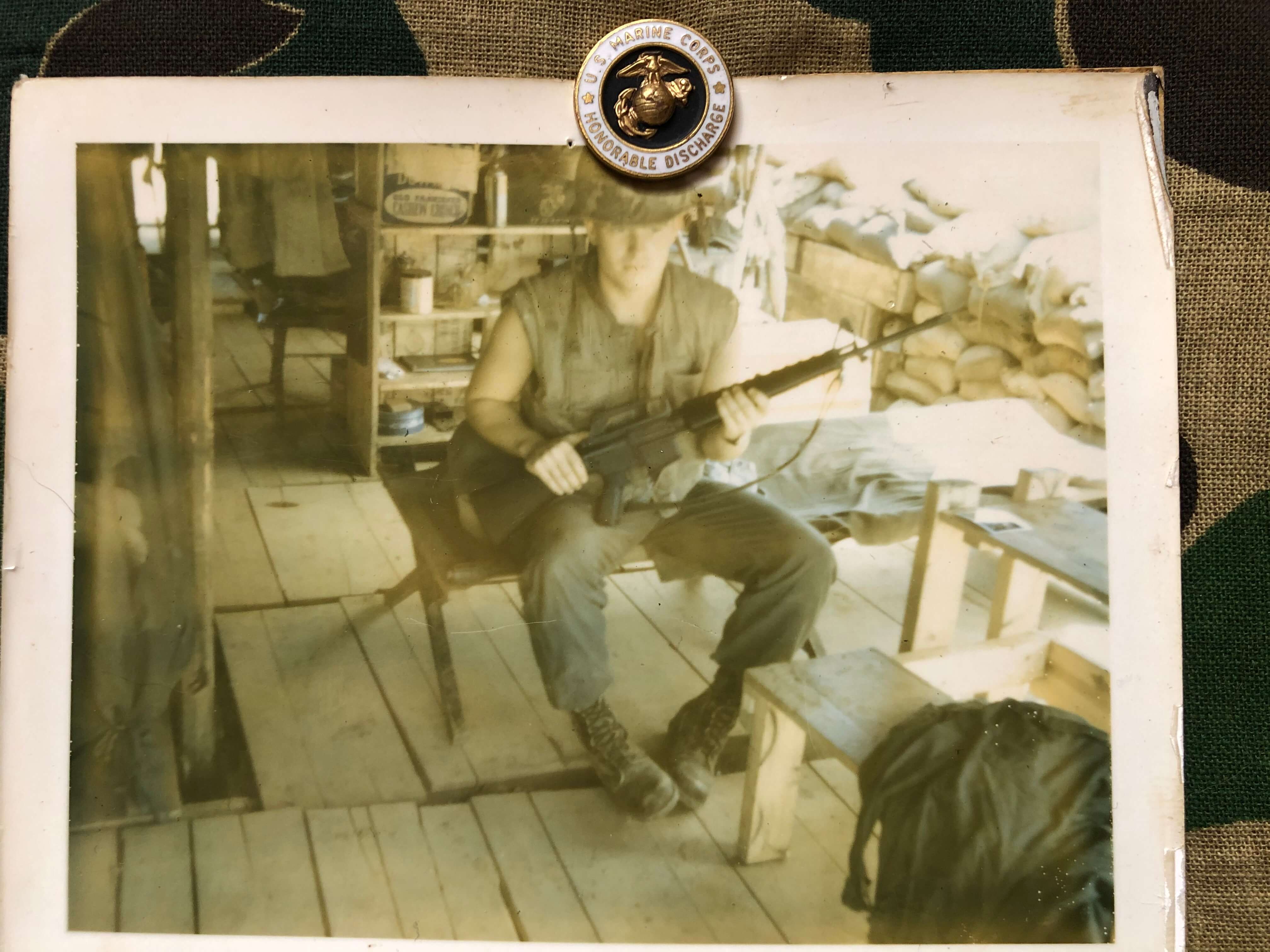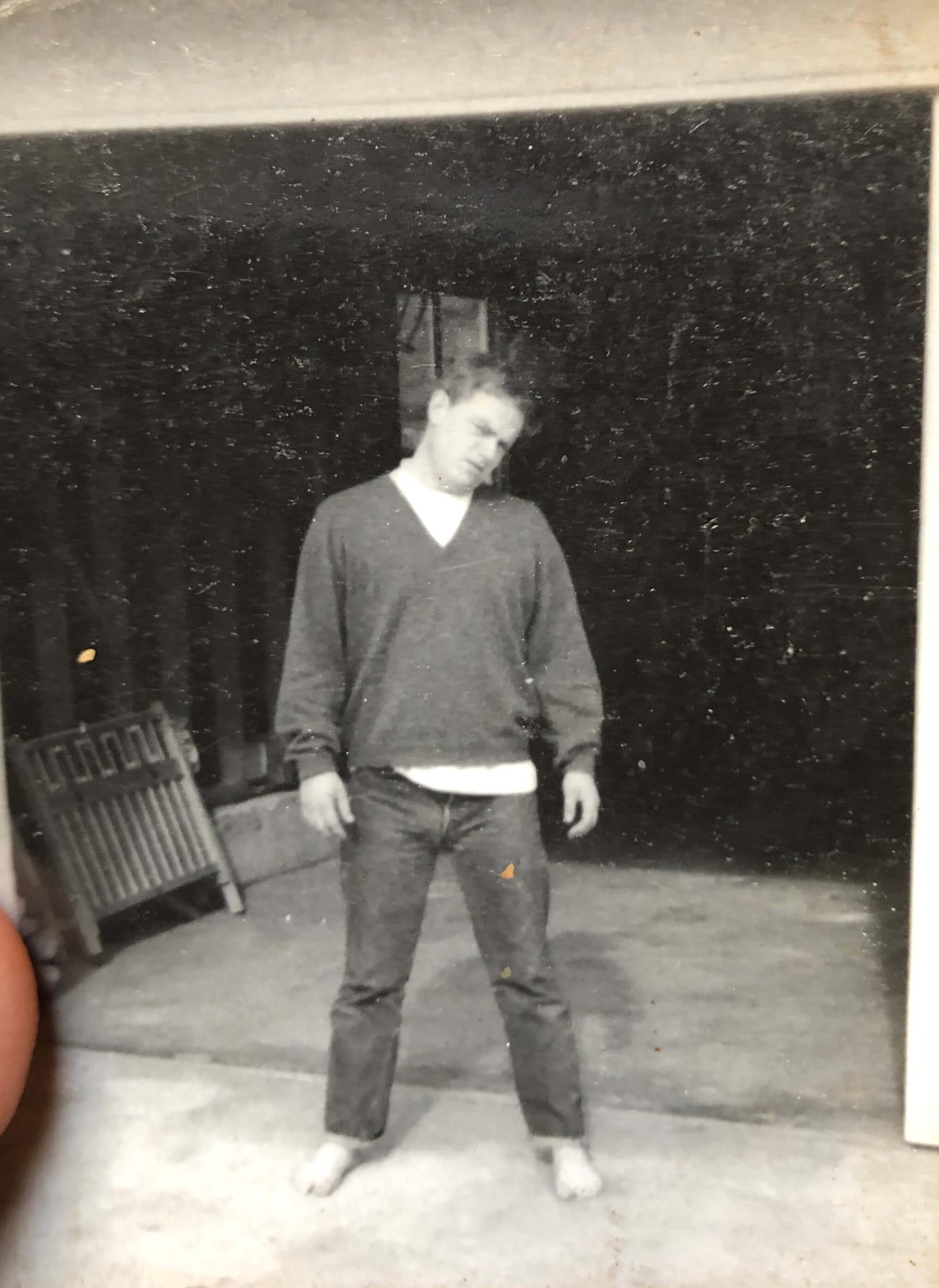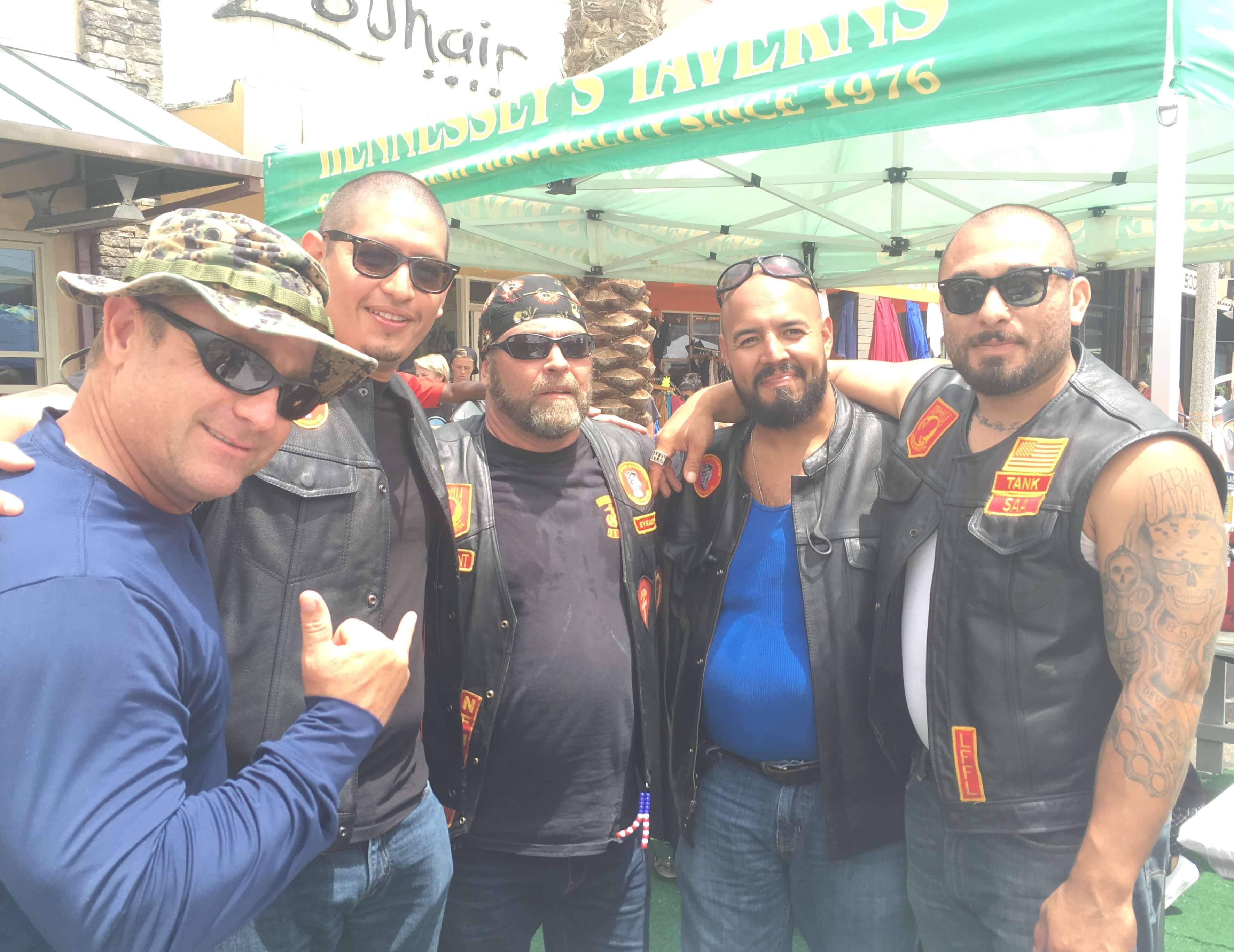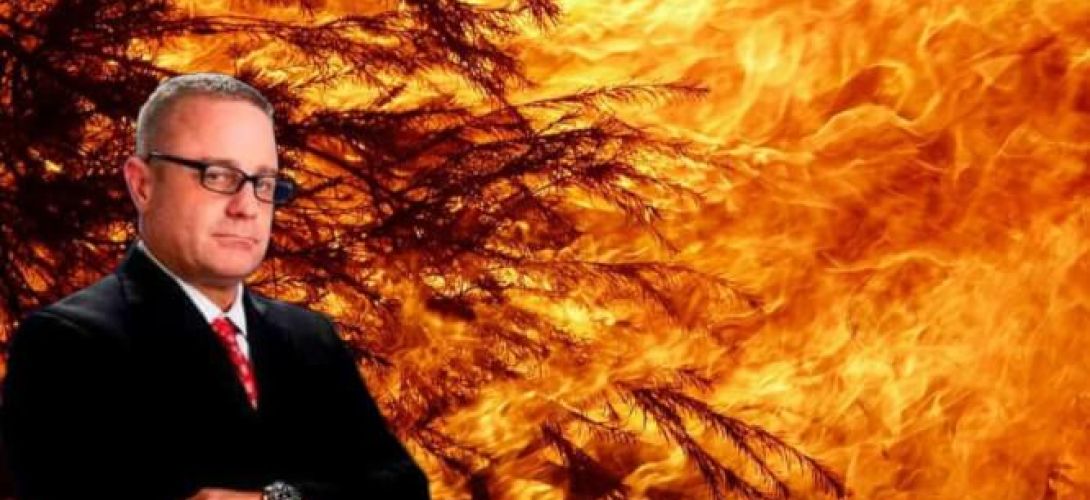
The Leathernecks M/C “Sergeant Paul Ehline Annual Ride” – What’s the Scuttlebutt?
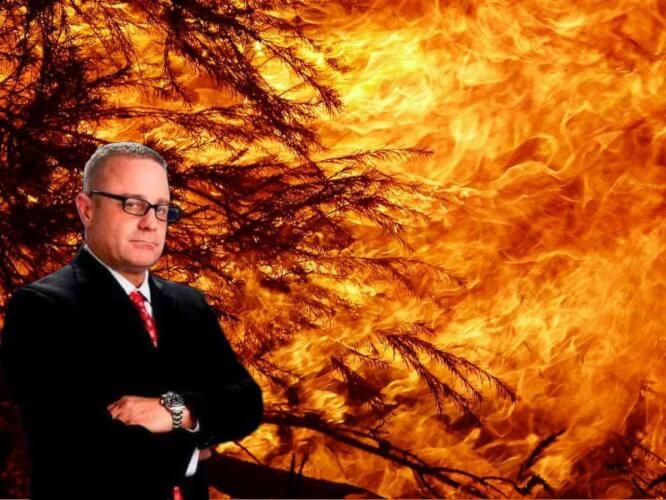
The Leathernecks M/C “Sergeant Paul Ehline Annual Ride” – What’s the Scuttlebutt?
Hello and welcome to Ehline Law Firm Personal Injury Attorneys, APLC. I am attorney Michael Ehline. I am the son of recently departed Swedish Viking warrior Paul Ehline, USMC (Ret.). It’s been just a few months since Paul’s eternal soul left this earth. These days after losing my father have been amongst the most confusing, depressing, and calamitous of my life.
On 8-15-20, at Lytle Creek Gun Range, my Marine brothers, sisters, and I will listen to a Marine bugler and bagpiper play taps, lock our bodies, and celebrate Paul’s official annual memorial and motorcycle ride. Also in attendance will be a Marine Honor Guard with rifles courtesy of USMC HQ. Being a lawyer, let me lay a foundation for you to understand the situation better.
Knowing my father is in Valhalla among his TRUE brothers was not enough for me to feel safe about him, his legacy, or my duty to his memory as a fellow Marine brother. Losing my father led me back full circle to our mutual brotherhood, the United States Marine Corps, which I will discuss in more detail below. The United States Marine Corps started as the Continental Marines and held the distinction of having been born in a bar called Tun Tavern on November 10, 1775. Perhaps the most important day in the Marines is the Marine Corps Birthday celebration. No other branch has anything close to this celebration. It’s a “thing.”
Understanding The USMC Brotherhood
First, I want to thank Lieutenant General Faulkner (Ret.), President of the Marine Corps Association, for getting me the emotional support I needed from my fellow brothers when I 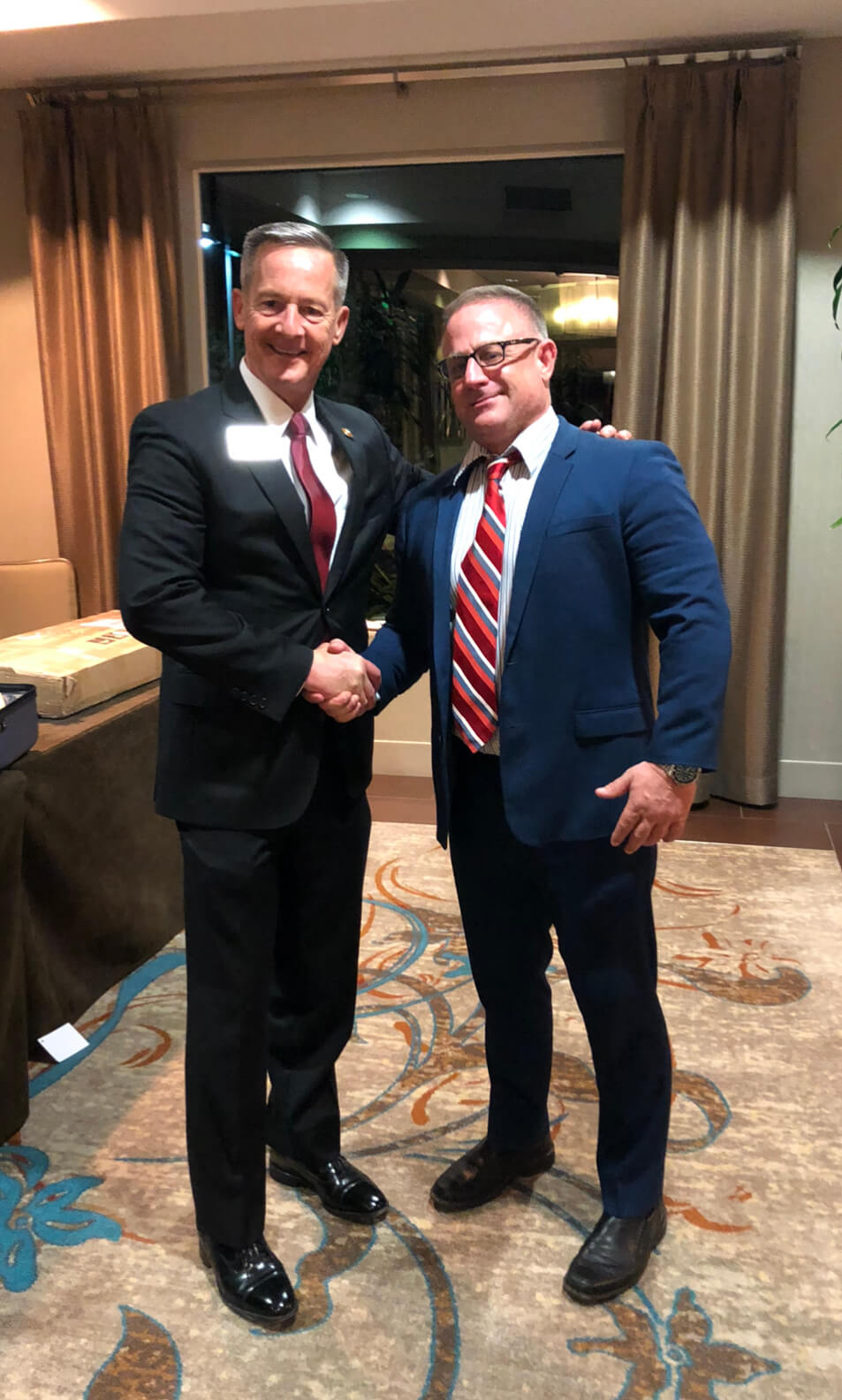
Lesson one:
“Leading by example, and leading from the front, are two of the most important attributes of a United States Marine Corps officer.” (Source).
Lesson two:
“ESPRIT DE CORPS” means no Marine ever lets another Marine down.
Although there are many Marine brothers I will thank in the following posts on this matter, there is a group of Marines to whom I need to pay special tribute:
Leathernecks Motorcycle Club (LMCI) – Mad Dog Chapter
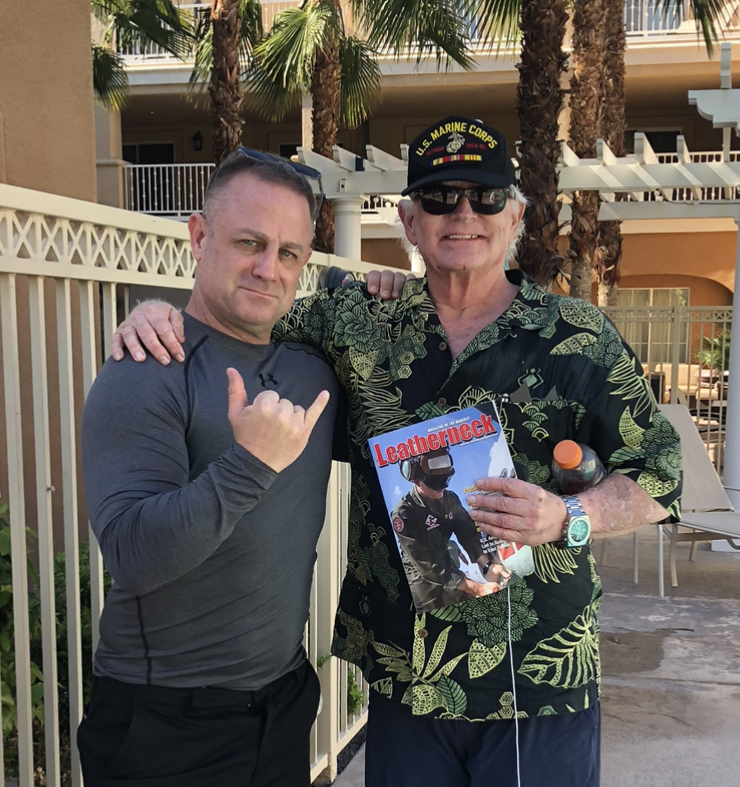
“Why couldn’t it have been me instead? He was a better man than me!” – Sergeant Paul Ehline referencing his X/O in Vietnam.
Because of our unique bond, Marines, especially Marines in leadership positions, may be unable to live with themselves when we feel so responsible for our fallen brothers (and sisters too). This carries on no matter how long we served or have been out. Boot camp is a religious experience, a great awakening of the warrior within. We are the Berserkers of America.
But what makes us so different from the other military branches is that we are never truly out of our beloved Corps, even when we are 100% disabled from combat or training wounds. Civilians get hung up on how long you served, believing that time in grade means something. Most of us lawyers know that the length of time practicing law is irrelevant. What matters is how good you are at your MOS and your success in that role.
An unknown, Vietnam-era Navy Doc psychologist said it best:
“When a person enlists in the Air Force for 6 years and gets out it takes them about 6 to 5 hours to readjust back into civilian life. A sailor who enlists in the Navy for 6 years takes about 6 to 7 months to readjust back into civilian life. A person who enlists in the Army for 6 years takes about 6 to 7 years to readjust back into civilian life. You Marines after you graduate from Marine Corps Boot Camp you will never ever readjust back into civilian life. You are a Marine forever.“ – Unknown Navy Doc
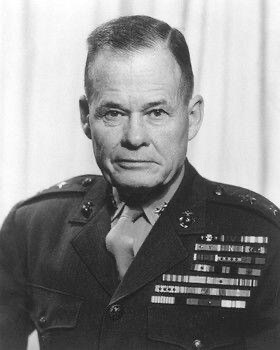
To get an idea of who my dad looked up just to read this:
“Don’t you forget that you’re First Marines! Not all the communists in Hell can overrun you!” (Col. Lewis B. “Chesty” Puller, USMC; rallying his First Marine Regiment near Chosin Reservoir, Korea, December 1950).
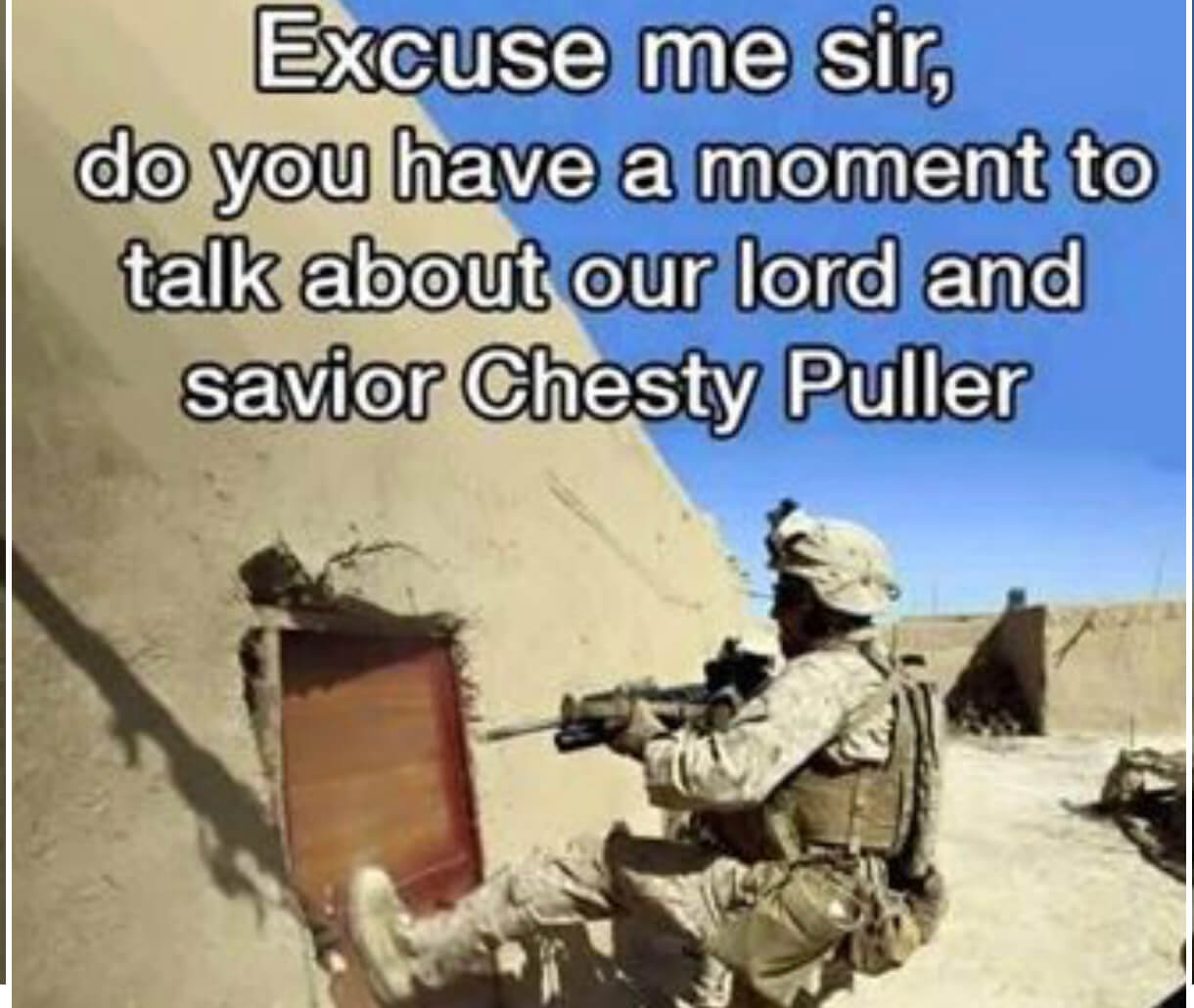
Interesting Fact About Paul Ehline The Civilian.
Once some sub-contractor on a job site my dad supervised said, “ex-Marine” when referencing my dad while within earshot, and dad went sideways. “There is no such thing as an ex-Marine. Unless you’re dead, you’re not a former Marine. Square yourself away!” And he was deadly serious with a smile.
- Lessons From a Real Man.
I learned most from Paul Ehline that when we promise a brother, we will do something; we are not joking. When we tell someone we will be there; we are there early. No excuses.
Here is a typical example of why we love each other so much:
“Jack [Jack Lucas] … used his body to shield three members of his squad from two grenades and was nearly killed when one exploded.” (Source).
That is what we do; that is part of what makes us the best. That is why we bear that title. That is why we alone deliver that title. Jack Lucas (See above), 17 at the time, lied about his young age to join the Marines. He only served for a few months before earning his Medal of Honor.
Most of all, it’s the intangibles that make Marines different. One of my buddies, a combat grunt, “John,” who I represented in a motorcycle accident case, explained it best: “We were already alpha males before we went in.” The Army, Air Force, and Navy have elite units like AFSOC, SEALS, Rangers, and Green Berets. But all Marines are elite, which is why they never wanted anything to do with SOCOM or JSOC until Donald Rumsfeld ordered them to create MARSOC.
I don’t consider Fleet Marine Force (FMF) Corpsmen or Chaplains to be anything but one of us, so let’s move on. (SEALS are fantastic, of course). We don’t walk around chewing gum with our hands in our pockets (“Army gloves”). We drill in such a way and have a military bearing that we marvel at women and our foes.
You can spot us a mile away by our bearing and discipline. One thing I will say and agree upon is that all non-combat Marines are ambivalent about never seeing combat. We joined because we wanted to test our mettle. We don’t care about money for college or some civilian job training program. We are warriors. As a matter of fact, I will step over 50 college snowflakes with entitlement mentalities to hire one combat Marine. I got my law degree after I became a sworn practicing lawyer. Tell me it can’t be done; that is simply a challenge. Marines are different.
Here is what one famous Marine said that sums it up very well:
“A Marine is a Marine. I set that policy two weeks ago – there’s no such thing as a former Marine. You’re a Marine, just in a different uniform and you’re in a different phase of your life. But you’ll always be a Marine because you went to Parris Island, San Diego, or the hills of Quantico. There’s no such thing as a former Marine.” (General James F. Amos, 35th Commandant of the Marine Corps). Besides dad, what attracted me most about the Corps is this one quote: “The Marine Corps makes no promises. It simply offers recruits and officer candidates the challenge to ‘be one of us.”‘
Paul Ehline, the Man, The Myth, The Legend

The family moved to southern California when Paul was two, and he grew up in Temple City and Garden Grove. At an early age, Paul distinguished himself as a super salesman, winning awards and recognition for the number of newspaper subscriptions he could secure from his door-to-door sales pitches.
As the youngest four children, Paul had to distinguish himself from his siblings. He chose to do so by having different interests and showing different abilities from his brothers and sister. Whereas they were compliant, academic, athletic, and musical, Paul chose cars, surfing, brawling, drag racing, art, and challenging family expectations and standards. Paul was a rebel! Paul paid cash for several muscle cars from the money he earned selling newspapers as a child.
- A Desire to Serve?
Despite being a brawler, surfer, and all-around badass, Paul wanted to be a Christian missionary. Following graduation from high school, Paul enrolled in a local junior college. However, before he had completed the first semester, he was drafted into the military. In his own words, after reporting to the Army,
“I specifically asked to be sent to the Marine Corps because I wanted to be the best.”
After completing boot camp at MCRD San Diego, Paul was sent to Vietnam as a MOS 0848 (Field Artillery Operations Chief) private. But due to his proficiency in math and honesty (he read his Bible daily and did not party with other Marines), the command promptly promoted Paul to field artillery sergeant. According to his many meritorious masts, Paul demonstrated consistent intelligence, commitment, responsibility, and high standards.
- Tours of Duty and Units.
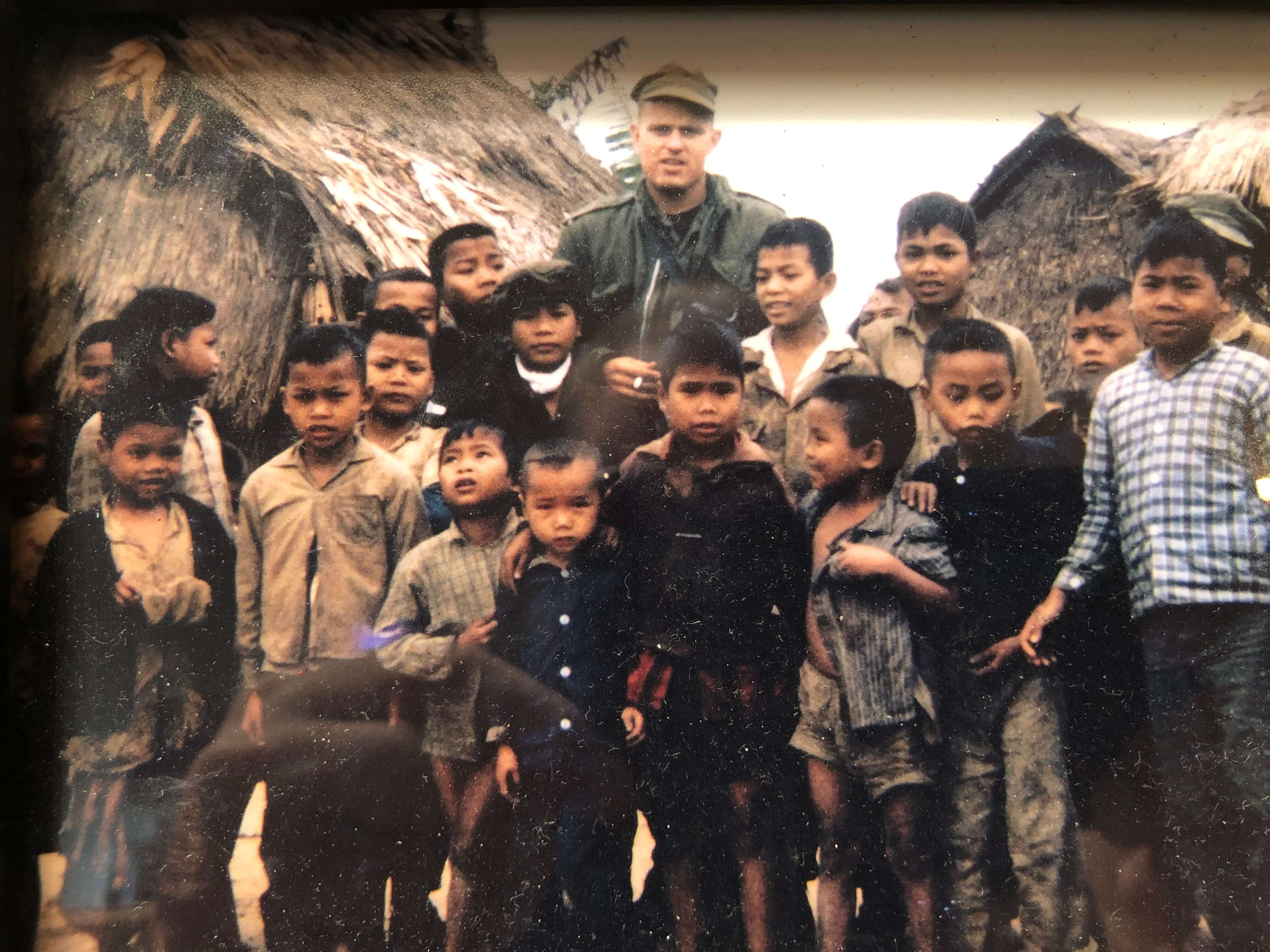
When he and the Recon Marines went into Mong villages along the DMZ, Paul witnessed the villagers and handed out Bibles his mother had sent him in the mail in between calling in Napalm strikes on enemy V.C. positions.
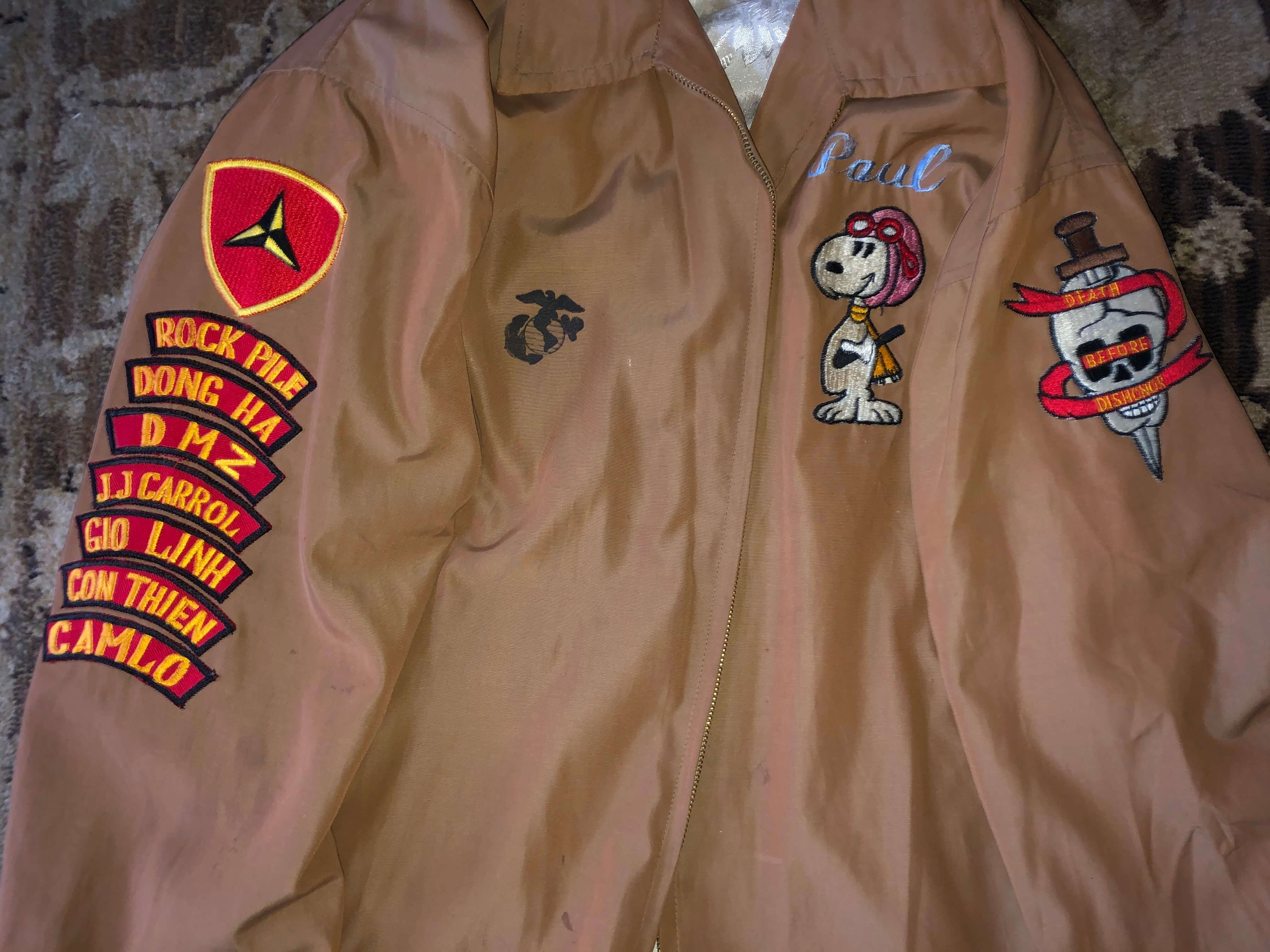
- 3d Marines.
- 13th MarDiv.
- G Battery 3d Btn.
- 5th Mardiv FMF.
After his first tour, he was sent home, reduced to marching new Marines into chow, and doing junk on the bunk inspections at Camp Lejeune. He promptly volunteered to go back, even though his tour of combat duty was over. He told me, “I felt guilty about leaving my unit and needed to get them home to their mothers.” That was MY DAD! Hence, he served in the Vietnam War for two years (’67 – ’69).
During those two years of being under constant enemy fire and exposed to Agent Orange regularly, he completed his tours of patriotic duty without knowing that he had developed a severe case of Post Traumatic Stress Disorder. Of course, he had no clue about the latent and potentially lethal hidden form of cancer from Agent Orange that years later would be diagnosed and cause his death.
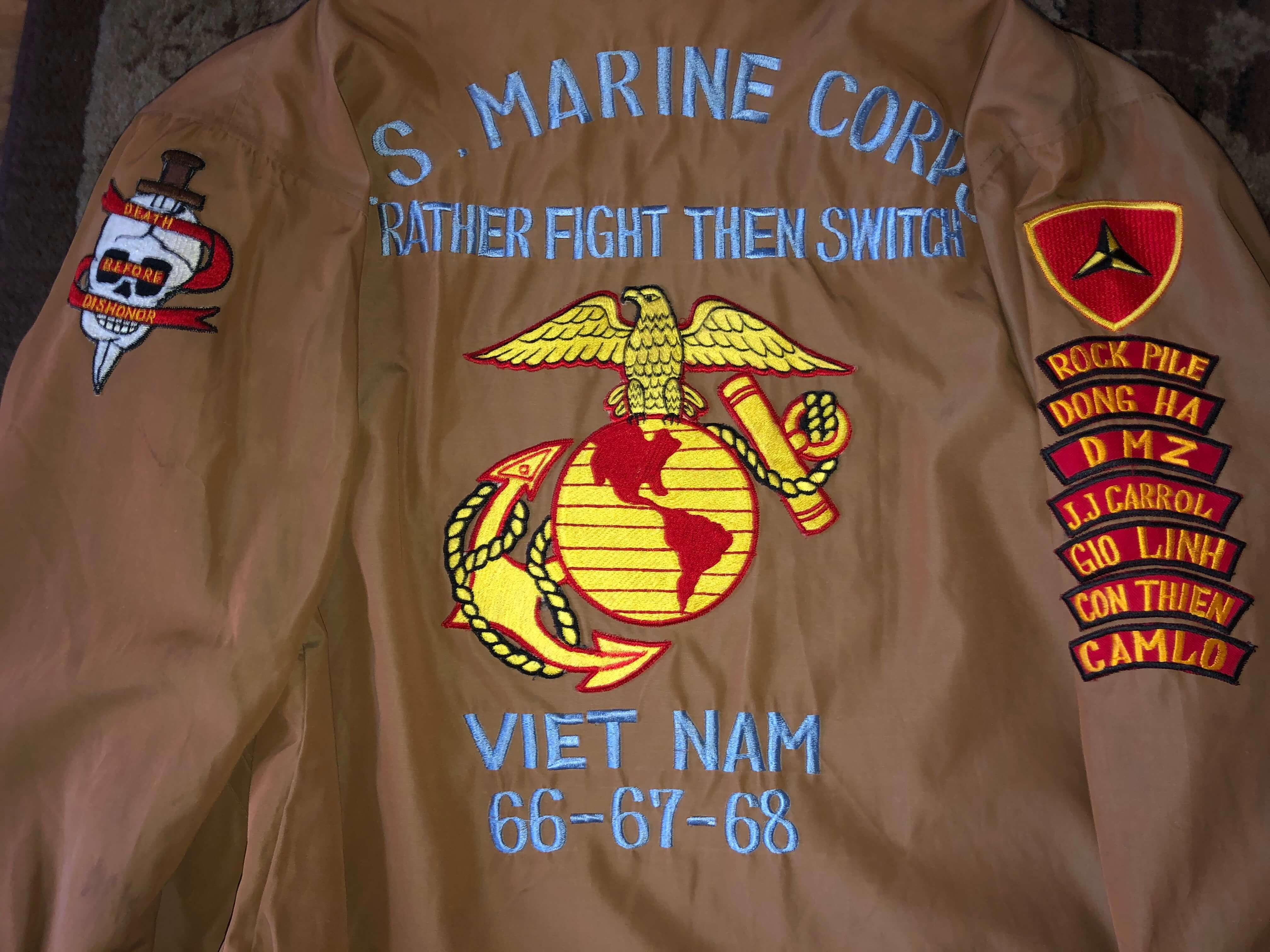
Chemo treatments had terribly unpleasant side effects for his last 5-6 years of life, But he was tough. Despite these setbacks and challenges, Paul would have retired a very wealthy man if the financial crash of 2008 had not occurred. Before that disastrous depression, the highly successful home-building company owned and operated by Paul and his brother Richard had been sold to a major construction company for several million dollars.
However, before the sale was completed and payment made, the buyer voided the signed contract. Richard and Paul had no option but to file bankruptcy. Through all of his times of self-doubt, illnesses, failures, disappointments, loneliness, and feelings of worthlessness, Paul maintained his Christian faith and hope. Throughout his life, he continued his practice of communal worship, Bible studies, personal devotions, and prayer and often shared his faith with others in a state of hopelessness and despair.
Always generous and willing to help, Paul financially supported several organizations that served the needy and most vulnerable. Despite his suffering, Paul always had a genuine heart and checkbook for those who needed assistance and a helping hand. Paul loved family above all earthly things.
Paul always maintained a solid and loving relationship with his siblings, their spouses, and his nephews and nieces. Above all, he loved and was very proud of his son, Michael, and dearly loved his daughter-in-law, Zulma, and his two grandchildren.
When Michael was little, he begged his mother to let him live with Paul. Finally, even though bitter and divorced, she knew that Michael was just like his dad and that he needed the influence of a driven man. So Michael ended up moving in with Paul, who was rarely home, as he worked perhaps 15-20 hours per day and rarely slept. Paul was haunted by the war and took it personally when his Marine brothers he fought alongside began taking their own lives.
- No one knew what PTSD was back then. To his son, Paul will be remembered for his self-sacrificing patriotic service to our country as a Marine and dedicated father. They buried themselves in work as a coping mechanism. Before the days of cell phones, Paul’s El Camino broke down on the way back from Mimi’s Cafe in Brea. Paul was bringing Michael food. Even though he was wearing a suit and tie, Paul got mike his meal after walking at least 5 miles to Anaheim Hills, where they lived.
Paul’s Influence On His Son, Michael
Ultimately, Michael left Paul when he was 16, dropped out of traditional High School, and got a full-time job as a painter’s apprentice. Paul said school or work. Mike chose both. 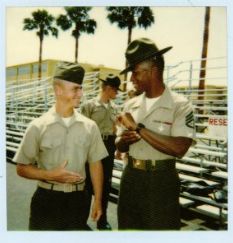
Paul protested Michael’s choice to join the Corps. Paul was uneasy that Michael asked to be in the infantry. He said, “Why can’t you just join the Navy and be safe?” However, when Michael was in boot camp., Paul wrote to Michael EVERY DAY Paul’s love of God, faith in Christ’s forgiving grace, belief in eternal life in heaven, and loving commitment to family were clear.
The PTSD that had probably started in his childhood due to this feeling of being rejected led to his incredible success in business, his endearing and enduring friendships, his remarkable generosity, and his ongoing example of persistence, perseverance, faith, and hope. ADespitefacing the most serious setbacks, disappointments, and losses., all endured Paul will be missed by all who knew him. But to his son Michael, who knew Paul as a comrade in arms and not just as a father, his life will always serve as an example of a well-lived life and a model for living a life of care, compassion, generosity, and service.
Michael knew relationships with women were no easy feat for dad. Even though mom and dad divorced when he was barely two, mom knew dad was legit.
One thing Michael took away from his relationship with Paul is that:
“….officers eat last and that any officer worries first about feeding their enlisted Marines and then lieutenants before he even picks up a knife or a fork.”
And that is how Michael runs his family. If they don’t eat, he doesn’t. Michael Ehline used those same USMC values and motivation to become a lawyer with no law degree in California. Michael suffered knee injuries during the School of Infantry (“SOI”). He was sent home awaiting orders and sent out for surgery at the V.A. After receiving an honorable discharge, Michael had difficulty adjusting to civilian life and maintaining friendships with fellow Marines.
Ultimately, Michael became number one in sales, just like his father. But Michael had aspirations of something more. So Michael enrolled in the California State Bar Law Office Study Program. True to form, Paul promptly helped Michael find a room for rent in Redondo Beach, California, through a business contact.
Michael worked at a Home Depot and studied in a law office during the day, paying $300 per month for rent. It was not until after passing the Bar Exam that Michael learned that Paul had been subsidizing Michael’s rent and had not told him! Just like God was to Paul, Paul was Michael’s silent warrior behind the scenes helping Michael achieve his goals.
Paul also paid for Michael’s wedding ceremony after Michael’s wife refused to elope! Paul adored and admired Michael’s wife, who is not from this country. She, in turn, adored Paul and often traveled, even without Michael, to visit Paul, pray with him and give Paul the love that only a daughter could provide.
Enter The Leathernecks M/C (LMCI) – Mad Dog Chapter “Sergeant Paul Ehline Annual Ride.”
Upon Paul’s recent death, Michael turned to his USMC brothers. Having met the “Mad Dogs” at a Redondo Beach Street Fair, Michael reached out years later upon Paul’s passing and asked that they help give Paul a memorial ceremony worthy of such a legit Marine. In short order, the Leathernecks M/C agreed to conduct a ceremony at the Lytle Creek Gun Range. The rest is history.
Paul was a good Marine and looked after his troops and only child, Michael. Now Michael has seen fit to surround his father with true brothers, establishing the Sergeant Paul Ehline Annual Ride. The ride aims to raise awareness about PTSD and cancer due to toxic chemical exposure while on active duty.
By honoring Paul in such a way, the Leathernecks M/C (LMCI) and its brothers have set an example for Michael’s children and wife of duty, honor, and country. The legacy of this warrior will live on forever. Marines die; that’s what we’re here for. But Paul Ehline will live forever in the blood of his offspring. And each year, the Leathernecks riders will honor him, and the Marines Paul loved so much.
In Paul’s own words,
“Ehline’s don’t kneel for our flag. We stand at attention and fight for it.”
This is the man we honor. In closing, “I hope my blood relatives can show for this first annual memorial service and ride. But they need to request leave. Marines always welcome relatives by appointment.” – Michael Ehline.
Categories
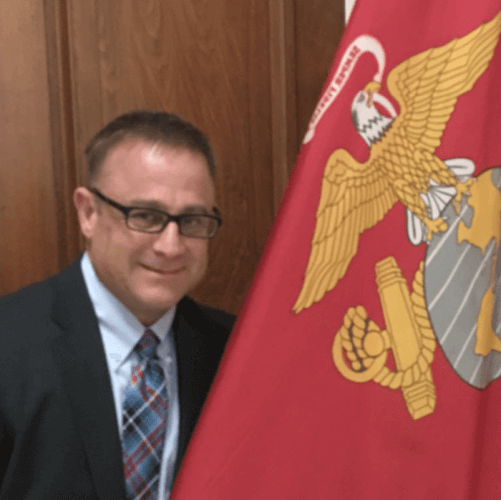
Michael Ehline
Michael Ehline is an inactive U.S. Marine and world famous legal historian. Michael helped draft the Cruise Ship Safety Act and has won some of the largest motorcycle accident settlements in U.S. History. Together with his legal team, Michael and the Ehline Law Firm collect damages on behalf of clients. We pride ourselves in being available to answer your most pressing and difficult questions 24/7. We are proud sponsors of the Paul Ehline Memorial Motorcycle Ride, and a Service Disabled Veteran Operated Business. (SDVOB.) We are ready to fight.
Go here to see More Verdicts and Settlements

